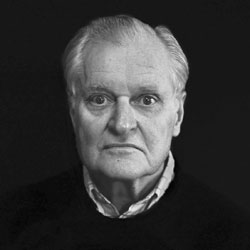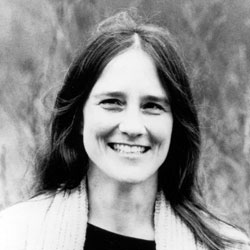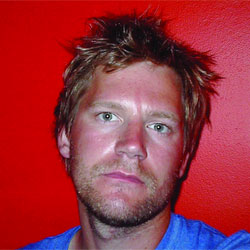Title: Lavinia Greenlaw reads at Edinburgh International Book Festival
 Location: Edinburgh, Scotland
Location: Edinburgh, Scotland
Description: The Edinburgh International Book Festival welcomes over 800 authors in over 750 events each year. Lavinia Greenlaw will read from her most recent collection, The Casual Perfect, and she’ll be joined by American writer Marie Howe.
Learn more here.
Date: August 25, 2012
Griffin Poetry Prize 2001 winner and 2012 judge Heather McHugh was born on this date in 1948.
Learn more about Heather McHugh here and here.
The Capilano Review invites entries for our fall contest. The contest’s judges, Miriam Nichols and Sharon Thesen, have provided a thematic statement for this year’s contest:
Throughout his writing life, Robin Blaser repeatedly turned to the sacred as a meditation on otherness: the world does not appear in his poems and essays as an economy of the Same, but as a dialogue among differences. In “Poetry and Positivisms,” he writes that “our cultural condition has a great deal to do with the nature of the sacred and that poetry of a certain order returns again and again to a discourse of cosmos with new attentions and cares.” Considering Blaser’s work on the other in the Image-Nation poems and in his essays, how might such a “discourse of cosmos” be articulated now?
Learn more here.
The Edinburgh International Book Festival welcomes over 800 authors in over 750 events each year including novelists, poets, scientists, philosophers, sportsmen, illustrators, graphic artists, historians, musicians, biographers, environmentalists, economists, Nobel and Booker prize-winners and many more besides, bringing readers and writers together for entertainment, discussion and pure inspiration.
Learn more here.
The Enoch Pratt Free Library in Baltimore, Maryland offers a Poetry & Conversation evening as part of its ongoing presentation of classes, events, exhibits and meetings.
Learn more here.
Wattpad touts itself as the world’s largest community for discovering and sharing stories on the web and across every mobile device. Wattpad has teamed up with Margaret Atwood to offer a range of prizes – including critiques of one’s work by Margaret Atwood herself – to aspiring poets in a two-tiered contest.
Learn more here.
The Foyle Young Poets of the Year Award is an opportunity for any young poet aged 11-17 to accelerate their writing career. Since it began 15 years ago the Award has kick-started the career of some of today’s most exciting new voices. With entries from over 7,200 young people last year across from the UK and worldwide, it is the largest competition of its kind and its importance is widely attested.
Learn more here.
 Location: Edinburgh, Scotland
Location: Edinburgh, Scotland

